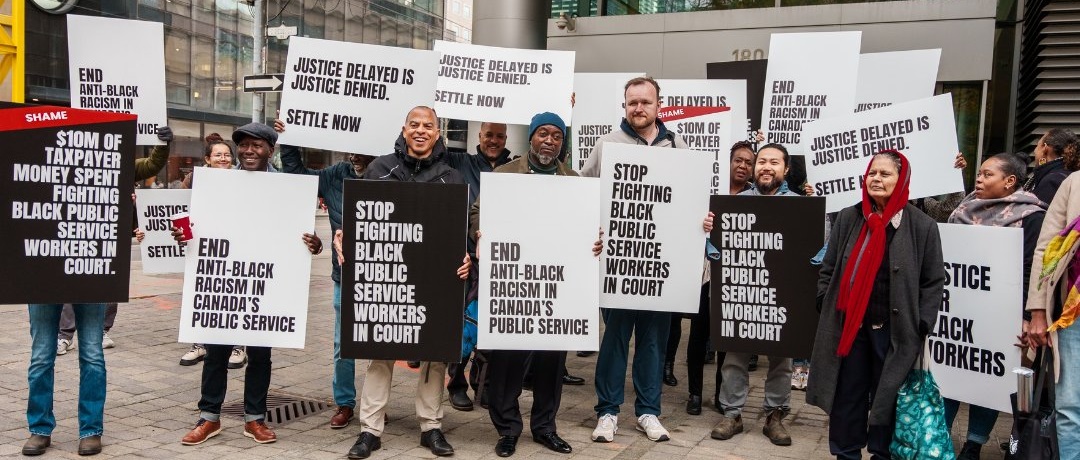As the federal court continues to hear from the federal government and representatives of the Black Class Action Lawsuit, one representative plaintiff shared why seeking justice through the court is meaningful to her.
Federal court proceedings to certify the Black class action lawsuit began this week and are expected to last for up to 12 days. The certification hearing will determine whether the case alleging systemic anti-Black racism in the federal public service can move forward as a class-action lawsuit. If certified, the lawsuit would cover all Black federal public service workers and job applicants from 1970 to the present, amounting to approximately 45,000 impacted workers. Plaintiffs are seeking $2.5 billion in damages.
Bernadeth Betchi is a representative plaintiff for the case. She said this class action being certified would be a huge win for collective healing.
“When you are a black person, a racialized person, someone who has been put in the margins, you know when people come to attack you,” Betchi said. “You know when people are there to oppress you. Folks will try to gaslight you and say that it’s all in your head. But we know our body is political.”
Betchi said for many Black workers, the chronic stress of workplace discrimination can lead to widespread mental health issues. It is hard for people to leave this hurt at work, she said, and this means the Black community as a whole is affected. She said if this case gets certified, it could set a precedent for other marginalized groups.
“These oppressions that we’re fighting right now with the Black class action suit are specific to black people, but many other groups in the margins can relate to some of these oppressions,” Betchi said. “Because they’ve been oppressed for maybe the color of their skin, for their sexual orientation, for their religion.”
Since Monday, the court has heard the government argue that some departments should be excluded from the lawsuit because of overlapping class action lawsuits. As well, it is arguing that this lawsuit should not be certified because unionized workers have a grievance process through the federal labour relations board.
During question period yesterday, Prime Minister Justin Trudeau was asked why the federal government continues to fight Black public servants in court.
“In extending the UN Decade of support for people of African descent, this government has done more to recognize systemic bias, systemic discrimination, unconscious bias and anti-Black racism than any other,” Trudeau said.
“We’re continuing to invest in anti-Black racism initiatives, continuing to stand with the Black community. There’s always more to do, and we will do it,” he added.
Kofi Achampong, a legal advisor for the Black Class Action Secretariat (BCAS), said it is important all departments are included in this class action because it accounts for over 50 years of discrimination.
“This [lawsuit] is unprecedented in various ways, and at the core of it is the idea that there’s common experiences across departments, across agencies,” Achampong said. “There’s a systemic problem in the way in which the government deals with hiring and promotion.”
He emphasized that taking the government to court is one of the best ways to seek justice given recent reports that indicate there is in fact systemic discrimination in the federal public service.
In 2023, the Treasury Board of Canada Secretariat concluded that the Canadian Human Rights Commission discriminated against its own Black and racialized employees after nine employees filed grievances through their unions.
This year, the Public Service Alliance of Canada joined the BCAS in releasing an internal report from the Privy Council Office which showed there is a workplace culture of racial stereotyping, microaggressions and verbal violence.
For Betchi, things seem hopeful for this class action.
“When it does get certified, we still have a long road ahead of us,” she said. “We haven’t quite won yet, but if it does get certified, then we’re one step further. We need to celebrate every single step, because we know that they’re not easy to get to.”




